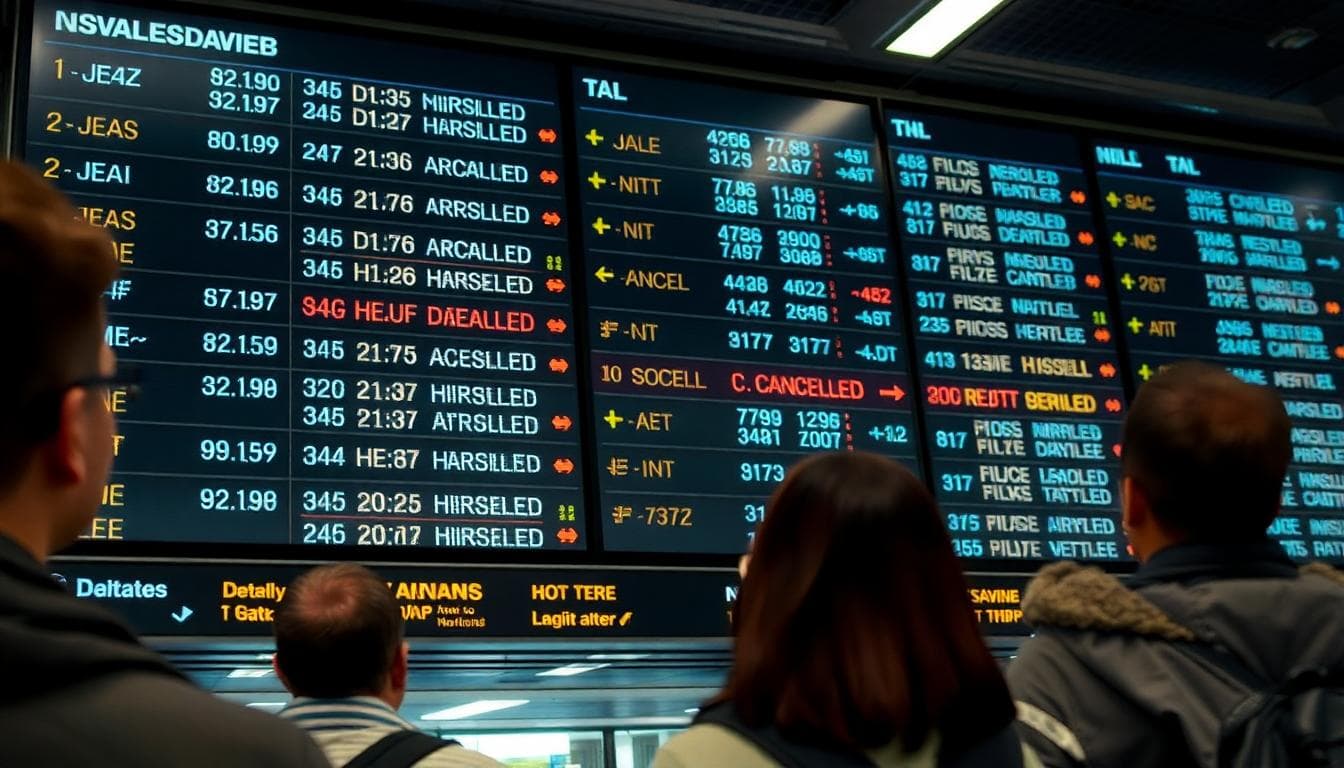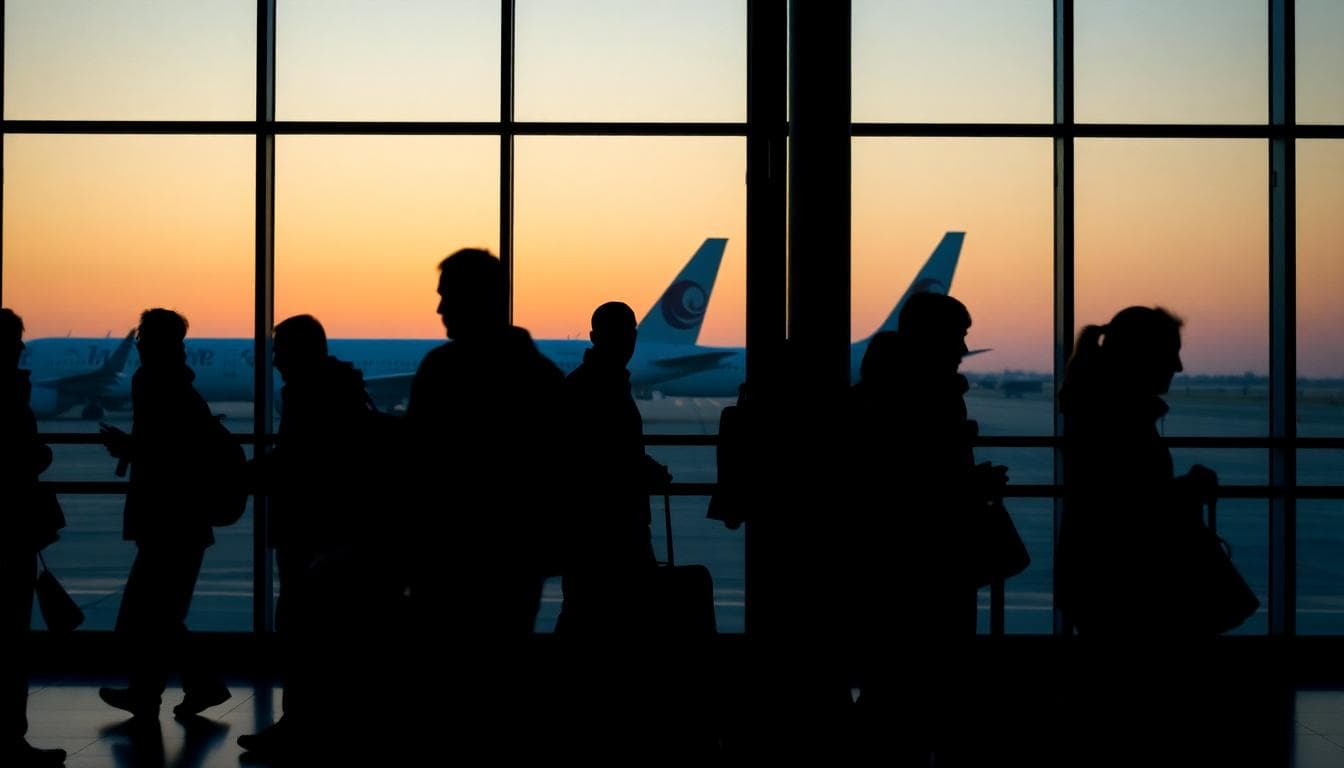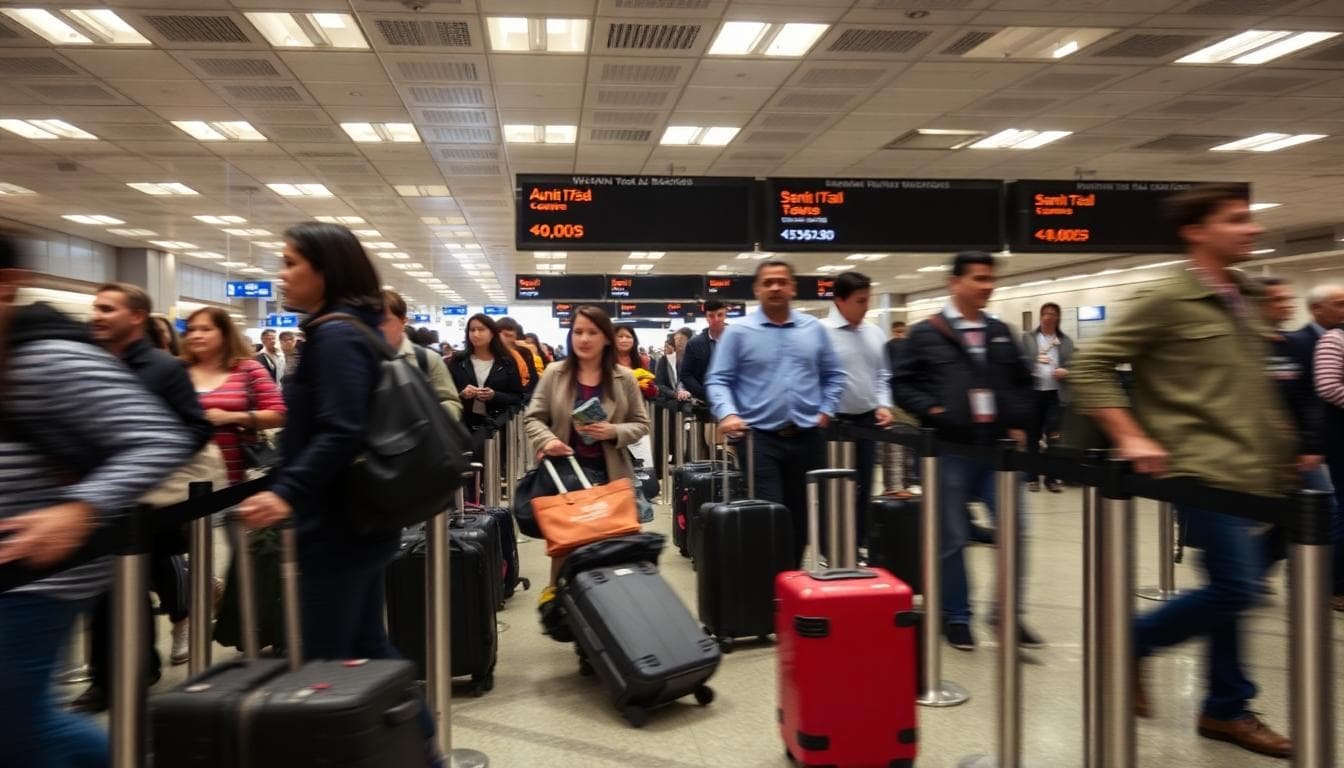Planning to fly this weekend? Be ready for disruptions. Airlines are canceling more flights and delays are piling up as the government shutdown squeezes air traffic control staffing. Federal guidance is driving schedule cuts at dozens of major airports, and carriers are warning that cancellations could grow in the days ahead if the shutdown continues.
Travelers across the country are feeling the impact. Some airports are seeing waves of delays despite cancellations meant to reduce pressure on controllers. If you have a ticket, the best move is to check your flight status often, consider earlier departures, and build backup plans before you head to the airport.
What’s happening with flights
Airlines have started implementing cuts to their schedules in response to federal direction aimed at maintaining safety with thinner staffing. The reductions vary by airport and day, but travelers should expect rolling changes, including same-day cancellations and longer-than-normal delays. Airlines may increase the rate of cancellations if the shutdown lasts through next week.
Several large carriers have announced weekend schedule trims across key hubs and busy routes. While not every flight will be affected, the overall traffic reduction means fewer options if your flight is canceled. Rebooking may take longer, and available seats on later flights could be limited.

Why the delays keep stacking up
Delays are not only about cancellations. Air traffic control facilities report staffing constraints that slow the pace of operations even when fewer flights are scheduled. Weather, crew availability, and aircraft rotations can add to the ripple effects. That is why some airports with fewer departures still experience long queues, late pushbacks, and missed connections.
The FAA’s strategy is to reduce traffic enough to keep the system safe. But when staffing remains tight, it takes time for the network to stabilize. That is why you might see a cancellation one day, a long delay the next, and a relatively smooth period afterward. It is all connected to balancing the flow of aircraft through busy corridors.
Your action plan if you’re flying
- Check your flight status often. Do this the night before, early morning, and again before leaving. Use the airline app and airport website.
- Move to an earlier flight if you can. Morning departures are less likely to be hit by knock-on delays.
- Avoid tight connections. Choose a longer layover or a nonstop route to reduce missed connections.
- Book direct with the airline. It makes same-day changes and refunds faster if something goes wrong.
- Know your rights. If your domestic flight is canceled or significantly delayed, you may qualify for a full cash refund.
- Use airline fee waivers. Many carriers are waiving change fees and fare differences for affected routes and dates.
- Pack smart. Put meds, chargers, and essentials in your personal item in case your bag arrives late.
- Consider travel insurance or card protections. Trip delay coverage can help with meals and hotels if you are stuck.
How airlines are handling changes
Carriers are adjusting schedules in phases. Some are trimming weekend departures first, then layering in weekday cuts if needed. Most major airlines are offering waivers that let you switch flights without extra fees when your route or date is affected. If you need to travel on a specific day, act quickly when you see a schedule change; open seats on alternative flights can go fast.
If your flight is canceled, you can choose a refund instead of rebooking. That can be smart if your trip is optional or if prices on other carriers are reasonable. If you must travel, consider nearby airports, different times of day, or splitting your trip across two carriers, as long as you can make the connection on your own.
Best times and routes to reduce risk
- Early morning departures are more reliable. The system is less congested, and aircraft are already at the gate.
- Nonstop routes avoid missed connections and reduce total points of failure.
- Hubs with multiple daily frequencies give you more backup options if your flight is cut.
- Avoid last flights of the day if you cannot stay overnight. Rebooking options are limited late at night.

Tips if you’re already at the airport
- Get in two lines. Use the app to rebook while you also queue for an agent. Take the first good option you see.
- Ask for interline rebooking. Some airlines may put you on a partner when it helps clear backlogs.
- Request meal or hotel vouchers politely. Policies vary, but it helps to ask if you are stranded overnight.
- Charge everything. Keep your phone alive to grab rebooking alerts as they drop.
- Track your bag. Use the airline bag tracker or an AirTag/Tile to locate checked luggage after a reroute.
What could happen next
If the shutdown continues, the FAA could extend or increase traffic reductions at busy airports, leading to more cancellations. Airlines will likely adjust schedules a few days in advance to comply, which means you may see changes pop up midweek for weekend travel. If lawmakers reach a deal, it can still take time for staffing and schedules to normalize, so keep a flexible mindset for the next week or two.
In the meantime, build extra time into your plans, keep your notifications on, and be ready with Plan B options. Patience and quick decisions are your best tools when schedules are shifting.
Weekend air travel will be bumpy while airlines cut flights and delays ripple through the system. Check your status early and often, use fee waivers to move to better flights, and favor morning nonstops when possible. If your flight is canceled, you can take a refund or rebook; decide fast to lock in the best option. Stay flexible for the next few days as schedules settle.
To contact us click Here .







